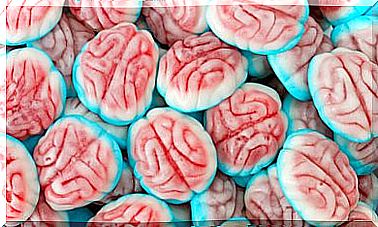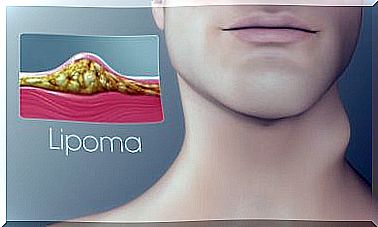Is Hiatal Hernia Curable?
To alleviate the symptoms associated with hiatal hernia, we must limit the consumption of certain foods and improve our lifestyle in general.

Those with hiatal hernia have a displacement of the stomach, which enters the chest through an opening known as a hiatus. Its most common symptoms are heartburn and swallowing difficulties. Is a hiatal hernia curable?
Although it affects up to 20% of the population according to studies, there are many habits that can improve it. In fact, most of the cases are controlled with a good diet and few medications. Only when the hernia reaches a considerable size is surgery required.
Is a hiatal hernia curable? What you should know
Hiatal hernia can affect people of any age, although it is most common after 50 years of age. It occurs when the upper part of the stomach protrudes through the diaphragm due to a weakening of the diaphragm.
When its size is small, it usually occurs asymptomatically. However, if it reaches a considerable size, the hernia allows the return of food and acidic juices to the esophagus, generating a heartburn crisis.
According to specialized sources, the factors related to its development are:
- Muscle weakness due to aging.
- Chronic cough.
- Constipation.
- Injuries after surgery.
- Obesity.
- Smoking
- Genetic factors.

Symptoms of hiatal hernia
As we mentioned, most hiatal hernias have no symptoms. However, they can be the cause of repetitive episodes of acid reflux, especially when its size is large. Other related complaints noted in the cited bibliography are:
- Spitting up food or liquids into the mouth.
- Difficulty swallowing.
- Abdominal or chest pain
- Shortness of breath.
- Vomiting with blood or dark stools (may indicate gastrointestinal bleeding).
- Constant belching
Diagnosis of hiatal hernia
Is a hiatal hernia curable? Yes, to a great extent. Now, before knowing how to deal with it, it is essential to receive a diagnosis. Suspecting this condition, the doctor does a physical examination and suggests tests such as:
- X-ray of the upper digestive system.
- Upper endoscopy.
- Esophageal manometry.
Treatment for hiatal hernia
If you have wondered if a hiatal hernia is curable, it is time for you to discover what treatments are available to improve the symptoms it causes.
In order to achieve good results, the focus is often on relieving heartburn, reflux, and other symptoms. Remember that the following keys do not constitute a replacement for the treatment that the professional may indicate.
Eat slow

Most people with this disease share the characteristic that they eat without chewing food well, too quickly. This puts a strain on the entire digestive system and affects that particular area.
Therefore, the first step will be to always eat seated, without haste and without distractions. Of course, before swallowing food, it must be thoroughly mashed. This will help, among other things, to avoid heartburn and gastroesophageal reflux.
Food against burning
Food plays a very important role in digestive health. Therefore, to answer if the hiatal hernia is curable, it will be necessary to make it clear that the diet must improve 100%. In fact, much of the success of your treatment depends on food, so receiving instructions from a nutritionist is an excellent alternative.
It is essential to avoid acidifying foods that produce slow digestion. In addition, those that, in each case, generate intolerances should be excluded.
Of course, the medical recommendations will vary according to the organism of each person; hence the importance of reviewing the diet with a specialist. We will generally avoid or limit the following food groups:
- Red meat and sausages.
- Dairy products.
- Sugars
- Fried
- Refined.
- Industrial pastries.
- Alcohol.
- Coffee.
- Spices such as cinnamon, cloves, ginger, or pepper.
- Mate.
Medications for hiatal hernia

To combat symptoms such as heartburn, reflux, and digestive discomfort related to hiatal hernia, your doctor often suggests some medications. However, its use should be moderate, since in excess it can produce adverse effects. The most frequent are:
- Antacids that neutralize stomach acid: such as Mylanta, Rolaids and
- Medications to decrease acid production: cimetidine (Tagamet), famotidine (Pepcid), nizatidine (Axid), and ranitidine (Zantac).
- Medicines that block acid production and heal the esophagus: called ‘proton pump inhibitors’. They include lansoprazole (Prevacid 24 HR) and omeprazole (Prilosec, Zegerid).
Is a hiatal hernia curable if symptoms do not improve with the above treatments? Yes. One last option is surgery. This procedure involves pushing the stomach down into the abdomen and reducing the size of the opening in the diaphragm.








